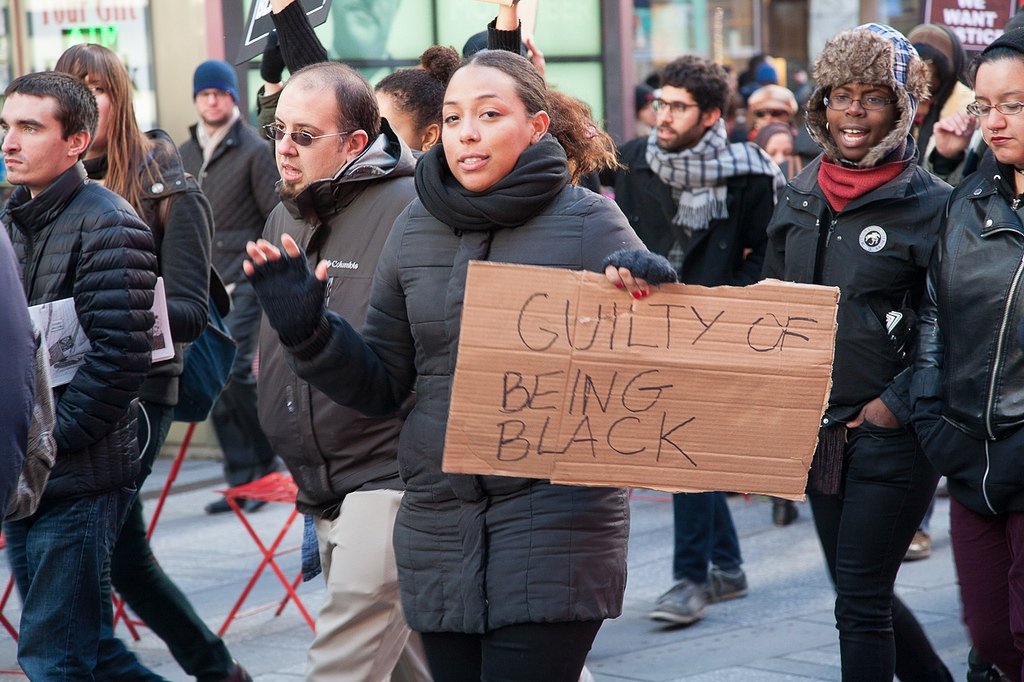Our First Amendment Rights Are at Risk

Original photo by Flickr user Dread Scott
252 bills in 45 states.
That’s how many punitive anti-protest bills have been introduced since 2017.
After police murdered George Floyd in May 2020, millions of people around the world took to the streets to stand up for Black lives. In the United States alone, up to 26 million people participated — making it the largest protest in U.S. history.
Following the uprisings, we saw a massive uptick in the introduction of bills that would crack down on the power of the people — limiting our constitutional rights to free speech and the right to protest.
For almost 20 years, Free Press Action has fought to stop the surveillance of activists, journalists, religious minorities, people of color, and other impacted communities. We need to be able to protest to fight for the issues we care so deeply about.
Proponents of these anti-protest bills are trying to change the rules of the game by giving more power to police and prosecutors while chilling our right to free speech and assembly.
Here’s just a sampling of what we’re up against:
- Several proposals include provisions that would strip people of public benefits — including the Supplemental Nutrition Assistance Program (SNAP) and unemployment benefits — if they’re convicted on a protest-related charge. This means people would have to weigh protesting against the risk of arrest and losing the ability to receive crucial benefits like health care, housing and more.
- A Tennessee law would make it a felony for demonstrators to camp at the state Capitol. This means that people convicted of protesting would lose their right to vote.
- In Florida, Oklahoma and Iowa, laws grant immunity to drivers who run into protesters with their cars. This is sickening.
- A proposal in Indiana would ban anyone convicted of protesting from getting a state job or running for elected office.
These legislative threats have only accelerated in 2022, as the swift passage of Georgia Senate Bill 171 illustrates. The legislation would undermine the constitutional rights to peacefully assemble and protest — requiring a permit for any kind of public demonstration. As Free Press’ Nora Benavidez notes in an Atlanta Journal-Constitution Op-Ed, this would give government officials and heads of law enforcement agencies “potentially unbridled discretion to pick and choose protests they deem acceptable.”
Racial bias
Make no mistake: These anti-protest bills are racially motivated. We have seen leak after leak showing that the police disproportionately target racial-justice activists with force and invasive surveillance technologies while downplaying the growing threat of violent white supremacists. That bias was on clear display during the Jan. 6 attack on the Capitol, a crime that was organized in plain sight.
Dissent and protest are foundational to our democracy. When laws oppress the power of the people, we fail to live up to our democratic ideals. And that’s not a world we want to live in.
But here’s the hopeful news: The Department of Justice (DoJ) has the power to fight these anti-democratic laws. Join us in urging the DoJ to defend our constitutional right to protest.